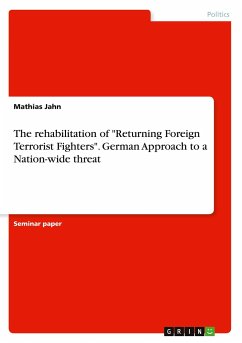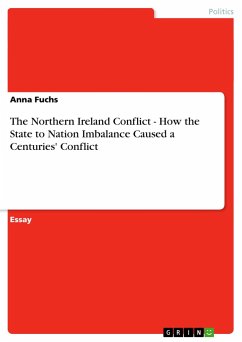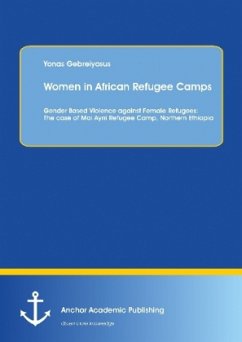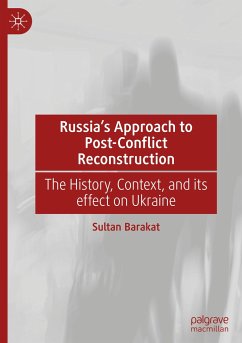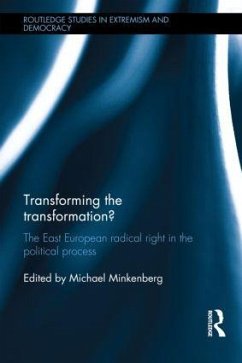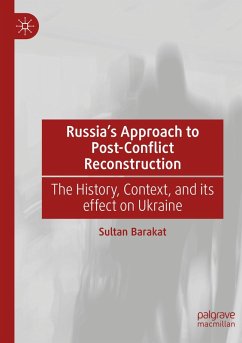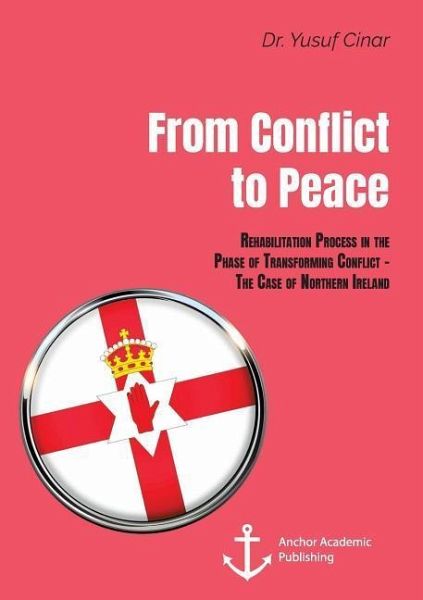
From Conflict to Peace. Rehabilitation Process in the Phase of Transforming Conflict - The Case of Northern Ireland

PAYBACK Punkte
0 °P sammeln!
The problem of Northern Ireland is a struggle for sharing power between the Catholics and the Protestants. The structural and basic reasons of the problem have played a very important role in the evolution of it towards civil war. The most important basic reason underlying it is mutual "distrust" between parties in Northern Ireland. On this regard, some necessary steps are to be taken for the stability of the peaceful environment established after the conflict. The normalization of the society and the making of the relations between groups transparent, constitute the "rehabilitation" process i...
The problem of Northern Ireland is a struggle for sharing power between the Catholics and the Protestants. The structural and basic reasons of the problem have played a very important role in the evolution of it towards civil war. The most important basic reason underlying it is mutual "distrust" between parties in Northern Ireland. On this regard, some necessary steps are to be taken for the stability of the peaceful environment established after the conflict. The normalization of the society and the making of the relations between groups transparent, constitute the "rehabilitation" process itself. Rehabilitation process ensures the continuation of confidence building in schools, helps with the matter of winning future generations, and also plays an important role in ensuring confidence building in institutions.
In sum the subject of this study is addressing the contributions of the rehabilitation as the protection of peace, to the social reconciliation process as formed by the societies living in Northern Ireland; and its continuation by discussing the rehabilitation process with reference to the example of Northern Ireland in the phase of transforming conflict. One of the main research questions of this study is to present the contribution of the rehabilitation process on peace within the context of conflict administration. In the first part of this book, the stage of rehabilitation in the development process of conflict administration is discussed. In the second part of this book, the structural reasons of conflict will be approached and Belfast Agreement, which can be described as a reconciliation document of parties, will be analysed. The third part is focused on how the results of the application of rehabilitation activities that are foreseen in the in the process of transforming the problem of Northern Ireland are obtained.
In sum the subject of this study is addressing the contributions of the rehabilitation as the protection of peace, to the social reconciliation process as formed by the societies living in Northern Ireland; and its continuation by discussing the rehabilitation process with reference to the example of Northern Ireland in the phase of transforming conflict. One of the main research questions of this study is to present the contribution of the rehabilitation process on peace within the context of conflict administration. In the first part of this book, the stage of rehabilitation in the development process of conflict administration is discussed. In the second part of this book, the structural reasons of conflict will be approached and Belfast Agreement, which can be described as a reconciliation document of parties, will be analysed. The third part is focused on how the results of the application of rehabilitation activities that are foreseen in the in the process of transforming the problem of Northern Ireland are obtained.






